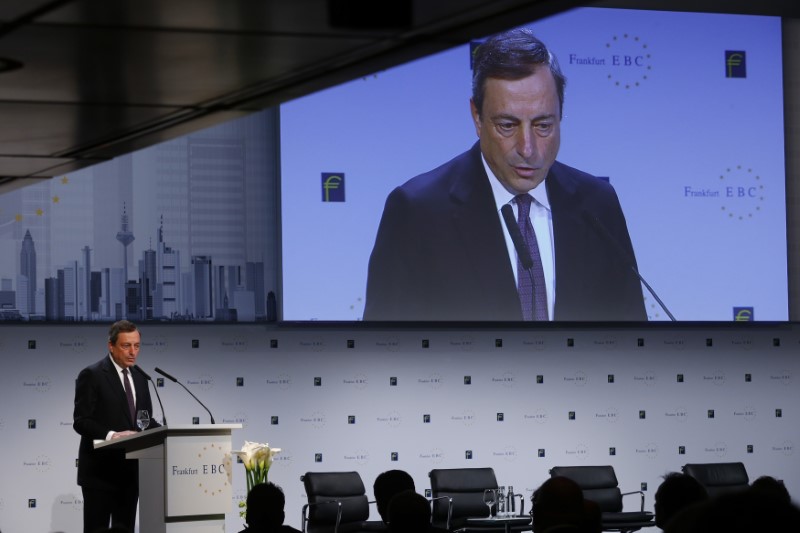FRANKFURT (Reuters) - Euro zone inflation could be higher than earlier expected in five years' time, the European Central Bank's survey of professional forecasters showed on Friday, partly underpinning the ECB's decision to curb stimulus a day earlier.
Price growth is seen rising to 1.9 percent by 2022, in line with the ECB's target and above the 1.8 percent predicted three months ago, according to the survey of 58 forecasters, an important input in the ECB's policy deliberations.
The ECB decided on Thursday to halve asset buys from next year but extend them by 9 months, arguing that the improved outlook allows for reduced stimulus, even if lengthy central bank support is still needed.
Inflation projections for the coming years were left unchanged, though both 2018 and 2019 forecasts remained above projections by the ECB's staff, suggesting these may be revised up when they are updated in December.
Indeed, the euro is trading weaker than the ECB expected and oil prices are sharply higher, indicating that the September projections may be too pessimistic.
Economic growth is also likely to be faster than earlier expected, with forecasts raised for both 2018 and 2019.
The survey now sees growth at 1.9 percent in 2018 and 1.7 percent in 2019, both 0.1 percentage point higher than three months ago. But longer term growth, defined as expansion in 2022, is still seen at 1.6 percent.

Unemployment is now seen falling faster than earlier thought with 2018, 2019 and longer term forecasts all cut by 0.2 percentage point.